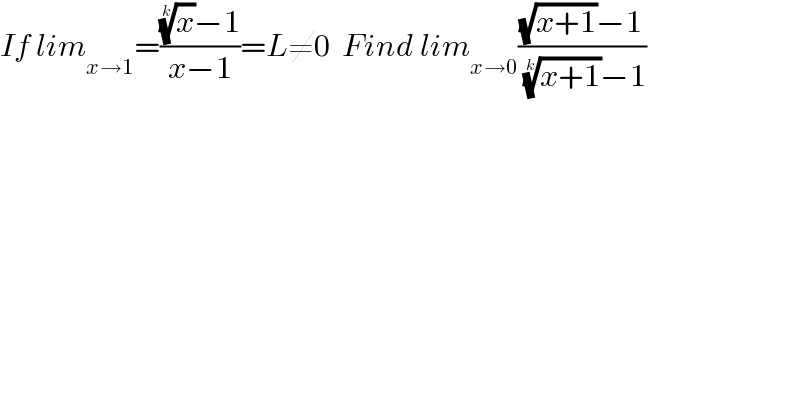
Question and Answers Forum
Question Number 141699 by cesarL last updated on 22/May/21

Answered by iloveisrael last updated on 22/May/21

| ||
Question and Answers Forum | ||
Question Number 141699 by cesarL last updated on 22/May/21 | ||
 | ||
Answered by iloveisrael last updated on 22/May/21 | ||
 | ||
| ||